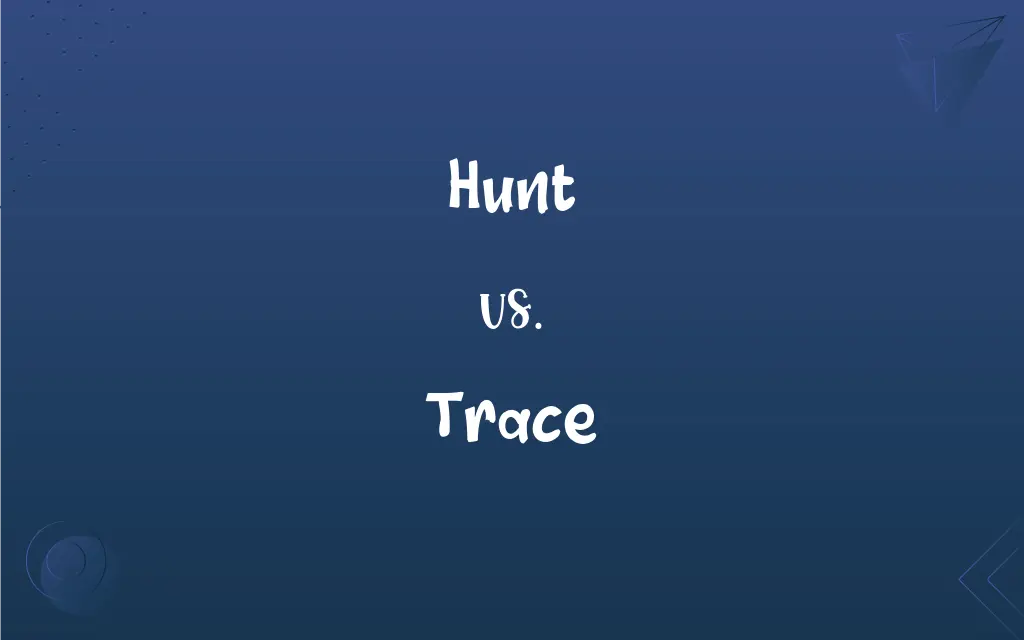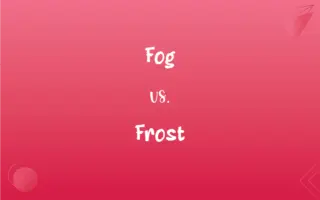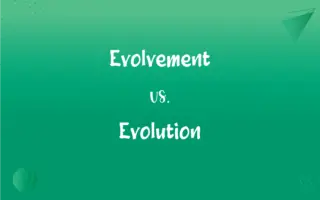Hunt vs. Trace: What's the Difference?
Edited by Aimie Carlson || By Janet White || Updated on November 13, 2023
Hunt involves actively pursuing or searching for something or someone, often with intent to capture or kill; trace refers to finding or discovering something by investigating clues or evidence.

Key Differences
Hunt typically implies a more active, often physical pursuit, like hunting animals or seeking an item with determination. Trace, on the other hand, suggests a more investigative approach, involving following clues or evidence to discover something's location or understand its nature.
Hunting is often goal-oriented with a clear target, such as in wildlife hunting or job hunting. Tracing, in contrast, is usually about piecing together information or a path, like tracing a phone call or tracing the origins of a historical artifact.
When one hunts, they may use tools like weapons or tracking devices, relying on skills like stealth and precision. Tracing often requires analytical tools or methods, such as forensic analysis or research, focusing on understanding and piecing together information.
In literature, to hunt can symbolize a quest or a struggle, often with a tangible goal. Tracing, figuratively, might represent the process of discovering or unraveling mysteries, sometimes implying a journey of self-discovery or historical understanding.
Historically, hunting has been a means of survival, sport, or control over wildlife. Tracing, historically, has been crucial in fields like genealogy, archaeology, and law enforcement, serving to uncover hidden or forgotten information.
ADVERTISEMENT
Comparison Chart
Primary Action
Pursuing or seeking actively
Following or discovering clues
Common Context
Wildlife, job, treasure
Investigations, research
Associated Tools
Weapons, tracking devices
Analytical tools, research methods
Goal Orientation
Clear, often tangible target
Piecing together information
Figurative Use
Symbolizes quest or struggle
Represents discovery, unraveling
ADVERTISEMENT
Hunt and Trace Definitions
Hunt
To seek out and find something or someone.
Detectives hunt for clues at a crime scene.
Trace
To outline or delineate something precisely.
The artist traced the outline of the portrait carefully.
Hunt
To actively search for or pursue game or wild animals.
She went to the forest to hunt deer.
Trace
To copy a drawing or pattern by following its lines on a superimposed piece.
She traced the map onto a fresh sheet of paper.
Hunt
To drive out or chase something from its hiding place.
The hounds hunted the fox out of its den.
Trace
To find or discover something by investigating clues or evidence.
The archaeologist traced the origins of the ancient relic.
Hunt
To search determinedly for someone or something valuable or important.
He hunted for a rare book in the old library.
Trace
To ascertain the origin or destination of something.
The detective traced the call to a location downtown.
Hunt
To engage in a pursuit with the intent to capture or kill.
The lion hunted its prey stealthily in the grasslands.
Trace
To follow, study, or monitor the course or development of something.
The scientist traced the path of the hurricane using satellite images.
Hunt
To pursue (game) for food or sport.
Trace
A visible mark, such as a footprint, made or left by the passage of a person, animal, or thing.
Hunt
To search through (an area) for prey
Hunted the ridges.
Trace
Evidence or an indication of the former presence or existence of something; a vestige
Left without a trace of having been there.
Hunt
To make use of (hounds, for example) in pursuing game.
Trace
An extremely small amount or barely perceivable indication
Spoke with a trace of sarcasm.
FAQs
Can 'hunt' be a sport?
Yes, like in hunting games or competitions.
Can 'hunt' be used in a non-violent context?
Yes, like hunting for bargains or information.
What does 'hunt' imply in a job search?
It suggests actively seeking employment opportunities.
Does 'hunt' always involve animals?
No, it can involve searching for objects or people.
Is 'trace' always about finding something hidden?
Often, but it can also mean delineating or outlining.
Does 'trace' involve historical research?
Yes, it's often used in historical and genealogical contexts.
What skills are needed to hunt effectively?
Skills like tracking, patience, and precision.
Can 'trace' be a recreational activity?
Yes, in activities like tracing family trees or history.
Is 'hunt' always physical?
Not necessarily, it can refer to virtual searches too.
What does 'trace' imply in an investigation?
It suggests following clues to uncover information.
Does 'hunt' imply success?
Not always; it's about the pursuit, not the outcome.
Is 'trace' ever used in a negative sense?
Rarely, but it can imply invasive investigation.
Can 'trace' refer to a physical action?
Yes, like tracing a drawing or pattern.
How is 'hunt' used in technology?
It can refer to searching for bugs or features in software.
What skills are important for tracing?
Analytical skills, attention to detail, and research ability.
How do 'hunt' and 'trace' differ in law enforcement?
'Hunt' is about actively seeking a suspect, while 'trace' involves piecing together evidence.
Can 'hunt' have a negative connotation?
Yes, in contexts like hunting endangered species.
Are there ethical concerns with 'hunt'?
Yes, especially in contexts of wildlife conservation.
Can 'trace' be used in scientific research?
Absolutely, in tracking developments or origins.
Can 'trace' be used in technology?
Yes, like tracing a call or data path.
About Author
Written by
Janet WhiteJanet White has been an esteemed writer and blogger for Difference Wiki. Holding a Master's degree in Science and Medical Journalism from the prestigious Boston University, she has consistently demonstrated her expertise and passion for her field. When she's not immersed in her work, Janet relishes her time exercising, delving into a good book, and cherishing moments with friends and family.
Edited by
Aimie CarlsonAimie Carlson, holding a master's degree in English literature, is a fervent English language enthusiast. She lends her writing talents to Difference Wiki, a prominent website that specializes in comparisons, offering readers insightful analyses that both captivate and inform.































































